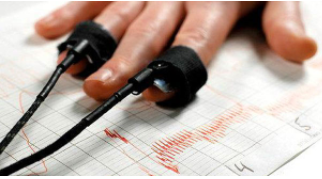Lies: A Psychology

How many times do you lie every day? Maybe you have a gift for someone special this holiday and want to hide it. Maybe you decided to peek at the presents under the Christmas tree, or you stole a potato latke. Maybe those little gifts on Kwanzaa were too pleasant to ignore. Either way there are many times that we are tested to tell the truth, and people, mainly kids, don’t always pass this test. In fact, according to Jerald Jillson of the University of Southern California, people lie up to 200 times every day (Liespotting). So, if it happens so often, what does it look like when you lie?
To begin, there are people who dedicate their life to studying the psychology behind lies. When you lie, your brain has to work harder than it already does. Doing things like, sounding truthful or keeping your story straight, create more work for your brain (Liespotters).
Furthermore, why does this happen? How do you detect a liar? When you lie, your body instinctively gives off “tells” or signs that you are lying; you can not control these signals. For example, when humans fake sadness, muscles in your chin flex (Liespotters). Another effect of lying is that you leave out sensory details or time details. For example, if you are lying to your mom that you got your homework done, you wouldn’t say “I got my homework done in 32 minutes in my last block.” Your answer would be more vague. Another way that a liar’s speech is affected is that they may alter the facts; for example “My homework is done, well I had no homework, well I had some, but I got it done in class.” Another “tell” is slow speaking, adding unnecessary pauses or seeming to take longer to turn their thoughts into words (Psychology Today). An example of this would be “Yeah … I finished my homework”.
On the other hand, if you think all of these “tells” are too much work to spot, there is good news; there are machines that can detect lies! The most famous machine is a polygraph. A polygraph detects a possible liar’s physiological, or uncontrolled actions. Like stated earlier, you have “tells” for when you lie, the polygraph can detect them (How Stuff Works).
To conclude, lying is a psychology. There are so many ways to detect a lie; all of the people, facts, and technology that surround the psychology of lies make it an immense subject. Next time you think someone is lying, try to look for the “tells”!
References:
Bonsor, Kevin. “How Lie Detectors Work.” HowStuffWorks, HowStuffWorks, 17 July 2001, people.howstuffworks.com/lie-detector.htm.
Gregoire, Carolyn. “Mindfulness At Work: 5 Tricks For A Healthier, Less Stressful Work Day.” The Huffington Post, TheHuffingtonPost.com, 24 June 2013, www.huffingtonpost.com/2013/06/24/mindfulness-atwork_n_3475045.html.
Meyer, Pamela. “10 Research Findings About Deception That Will Blow Your Mind.” Liespotting, liespotting.com/2010/06/10-research-findings-about-deception-that-will-blow-your-mind/.
Whitbourne, Susan Krauss. “9 Ways to Tell Who’s Lying to You.” Psychology Today, Sussex Publishers, 19 July 2014, www.psychologytoday.com/blog/fulfillment-any-age/ 201407/9-ways-tell-whos-lying -you.




